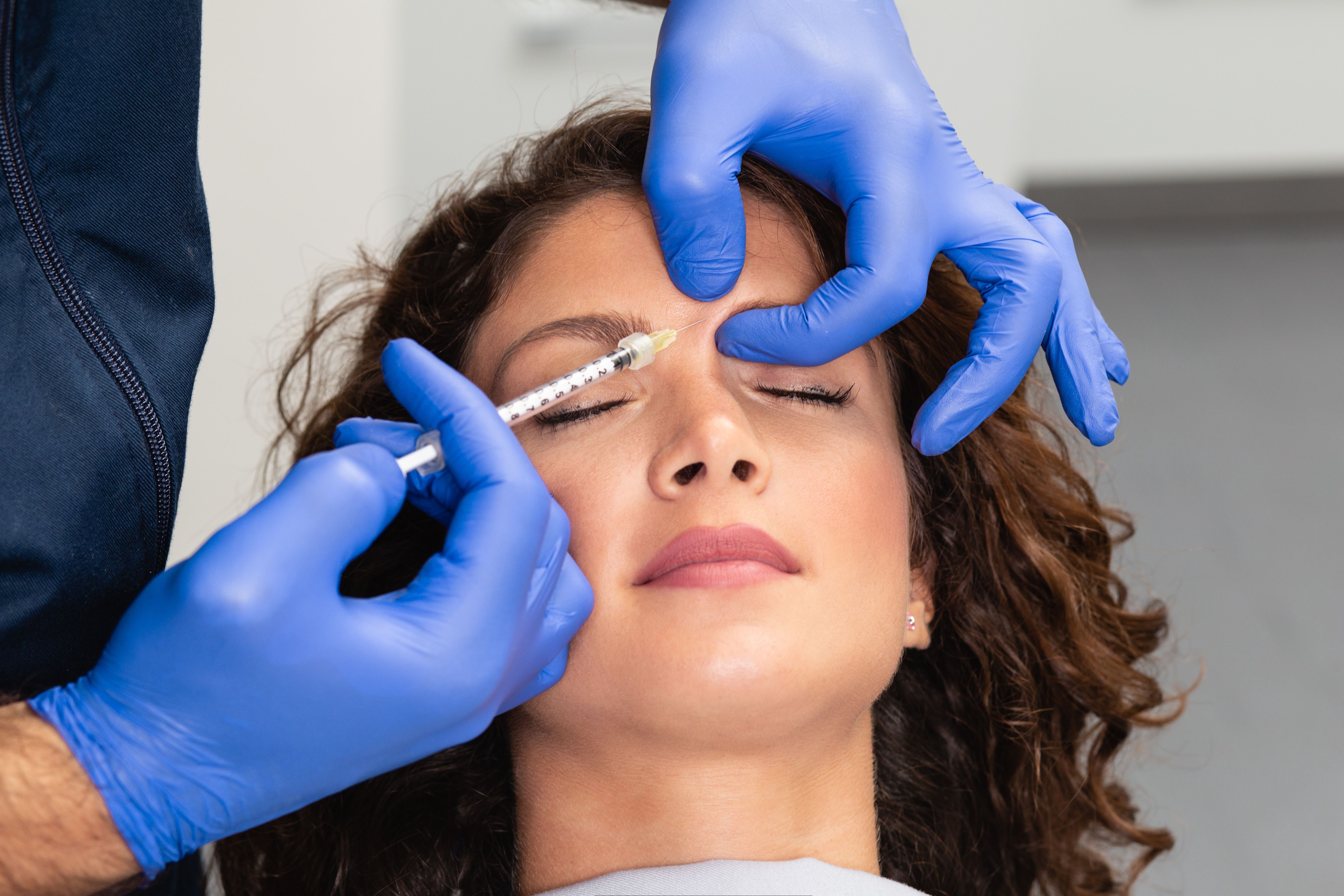- Acne
- Actinic Keratosis
- Aesthetics
- Alopecia
- Atopic Dermatitis
- Buy-and-Bill
- COVID-19
- Case-Based Roundtable
- Chronic Hand Eczema
- Chronic Spontaneous Urticaria
- Drug Watch
- Eczema
- General Dermatology
- Hidradenitis Suppurativa
- Melasma
- NP and PA
- Pediatric Dermatology
- Pigmentary Disorders
- Practice Management
- Precision Medicine and Biologics
- Prurigo Nodularis
- Psoriasis
- Psoriatic Arthritis
- Rare Disease
- Rosacea
- Skin Cancer
- Vitiligo
- Wound Care
News
Article
Facial Botox Injections May Elevate Mood, Study Finds
Author(s):
The findings support the idea that Botox can enhance emotional well-being and self-confidence, although it did not notably impact the quality of life.
Image Credit: © hedgehog94 - stock.adobe.com

Depression affects around 280 million people globally, with women being twice as likely to suffer compared to men.1 The condition negatively impacts quality of life and is often underdiagnosed and undertreated. Despite various antidepressant treatments, about 1/3 of patients remain symptomatic.2
Recent research has explored the potential of botulinum toxin A (BTA) as an alternative therapy. BTA can affect facial expressions by paralyzing the glabellar muscles involved in frowning. Researchers hypothesized this intervention may disrupt the negative facial feedback loop associated with depression, potentially improving mood and reducing amygdala activity linked to negative emotional responses.Additionally, researchers noted this interruption in the loop can create an overall more positive aesthetic presentation, leading to more self-confidence.3-4
Recent study findings indicate that BTA injections not only improve the appearance of frown lines but may also enhance mood and overall quality of life.5 A recent study aimed to further investigate BTA’s effects on individuals without depression, focusing on its impact on happiness and quality of life.6
Methods
The study involved 87 patients, aged 18 to 70, seeking BTA for facial wrinkles. The study excluded patients with a history of neuromuscular disease, recent cosmetic procedures on the face within the past 3 months, a history of suicide attempts, major depression, other psychiatric diseases (such as diagnosed OCD, schizophrenia, or bipolar disorder), or those using any psychiatric drugs, pregnancy, and lactation. Patients received 500units of BTAdiluted in saline, and their quality of life and happiness were assessed using the WHOQOL-BREF and Oxford Happiness questionnaires before and 1 month after treatment.The WHOQOL-BREF measures physical, psychological, social, and environmental health using a 26-item questionnaire rated on a 5-point scale which is then translated into a 0-100 scale for standardized assessment. The Oxford Happiness questionnaire evaluates overall happiness using a 29-item questionnaire rated on a 6-point scale ranging from strongly agree to strongly disagree.
Results
Researchers did not find a significant difference in the mean quality of life scores (p > 0.05) after BTA injections for either gender. However, they did reporta significant difference in the mean values of happiness after the procedure (p = 0.001), with no notable gender differences in happiness outcomes (p > 0.05).
This aligns with existing research suggesting that facial expressions and the feedback they generate can influence mood and emotions. BTA injections, by enhancing facial expression and disrupting negative emotional feedback, appear to improve mood and boost self-confidence.3 However, the lack of significant change in quality of life was unexpected, given that improved mood and self-confidence are typically associated with better quality of life.7 Researchers suggested the short follow-up period of 1 month may have been insufficient to detect any substantial quality of life improvements. Previous studies predominantly focus on BTA for patients with depression, whereas this study targeted those seeking cosmetic enhancements. The study stated this difference in focus means the results might not translate directly to patients with clinical mood disorders.
Conclusion
This study provides initial evidence supporting BTA's potential benefits for mood enhancement in cosmetic contexts, suggesting it could have adjunctive value in treating mood disorders. Researchers stated understanding the happiness phenomenon can help to appreciate the interplay between facial expressions and emotions, but it's just one piece of the puzzle in understanding human psychology and well-being. They suggested that further research is necessary to confirm the study’s findings and explore BTA’s role in therapeutic settings for depression and related conditions.
References
- Cui L, Li S, Wang S, et al. Major depressive disorder: hypothesis, mechanism, prevention and treatment. Signal Transduct Target Ther. 2024;9(1):30. Published 2024 Feb 9. doi:10.1038/s41392-024-01738-y
- Amado-Boccara I, Donnet D, Olié JP. La notion d'humeur en psychologie [The concept of mood in psychology]. Encephale. 1993;19(2):117-122.
- Izard CE. Facial expressions and the regulation of emotions. J Pers Soc Psychol.1990;58(3):487-498. doi:10.1037//0022-3514.58.3.487
- Wollmer MA, Magid M, Kruger THC, et al. Treatment of depression with botulinum toxin. Toxins (Basel). 2022;14(6):383. Published 2022 May 31. doi:10.3390/toxins14060383
- Lewis MB, Bowler PJ. Botulinum toxin cosmetic therapy correlates with a more positive mood. J Cosmet Dermatol. 2009;8(1):24-26. doi:10.1111/j.1473-2165.2009.00419.x
- Roohaninasab M, Mansouri P, Shariati B, et al. The effect of facial BOTOX injection on quality of life and happiness, a descriptive/prevalence study. Health Sci Rep. 2024; 7:e2303. doi:10.1002/hsr2.2303
- Bonomi AE, Patrick DL, Bushnell DM, et al. Validation of the United States' version of the World Health Organization Quality of Life (WHOQOL) instrument. J Clin Epidemiol. 2000;53(1):1-12. doi:10.1016/s0895-4356(99)00123-7
Newsletter
Like what you’re reading? Subscribe to Dermatology Times for weekly updates on therapies, innovations, and real-world practice tips.














